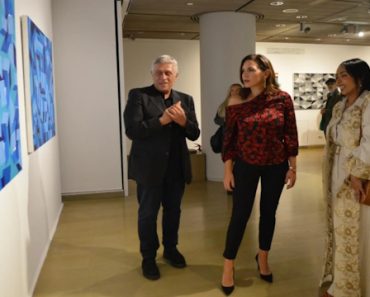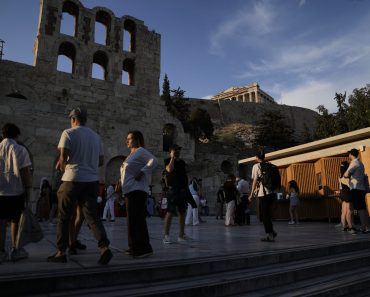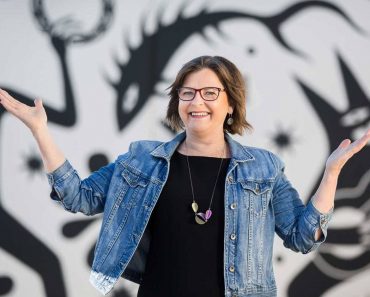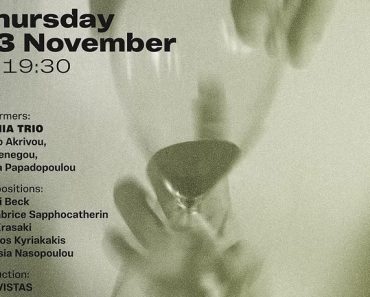
‘For many years, not anymore, when I went to wash my face in the morning I saw the 7-year-old me in the mirror,’ Dionysis Savvopoulos told Kathimerini in an interview in 2024.
“I couldn’t become a man of the city, I’m a northern Balkaner,” Dionysis Savvopoulos joked in 2022 from the stage of the Athens Concert Hall. But the dilemma remained there within him. At some point he asked: “When the time comes to bury me, where, I wonder? Here or over there?” And he sang: “In front of the gate I will stand / with the blankets under my arm / And slowly shaking my head I will greet the guard.” Perhaps he even nodded. Perhaps, that was the first farewell.
Of course, after that, he shifted gear, with other shows, with his dynamic presence. He fooled us and we believed it. He didn’t want to leave the “party” that is life, as he had confessed, smiling cheerfully and slyly when he turned 80. That concert, three years ago, titled “I was born in Salonika,” was prophetic, because it remained indelible in many ways. He always treated us to little stories he made up, narratives that were fascinating no matter how many times we listened to them, because Savvopoulos had his own way of narrating. He was a great and decisive storyteller.
He saw and understood our lives, he put lyrics and music so that no moment would be left uncelebrated. Even the farewells, the sorrows, the depressions, the internal rebellions, the wanderings in the city, in politics, in history, in ourselves – they all had their song. We owe him “our voice,” whatever that means. But as he had said that night on the stage: “Everything is here, nothing is lost. Even those who are gone are here. We come from places of light.” With this exhortation, therefore, we write this warm note.
We last met him in person in the summer of 2024 for an interview, on the occasion of his concert at the Odeon of Herodes Atticus for the 50th anniversary of the restoration of democracy in Greece, as part of the Athens-Epidaurus Festival. We took care of him because we knew his health was fragile. We wore a mask when we needed to get close to him (especially the photographer Elisavet Moraki was very careful with the close-up shots).
But he seemed fearless, he remained serious even when he brought up anecdotal snapshots from the past, he remembered stories from the first years of his life in Thessaloniki (he was also preparing his autobiography at the time, which was published a few months later), he sometimes kept the tempo with his fingers on the desk, he said that “words have their sound.” And there was always a sparkle in his eyes when he liked his answer to the question or a fleeting shadow when he was not satisfied. And he always found the point, the core, he did not waste time on pointless chatter. Like when he commented that in that first decade of the restoration of democracy, “you could be singing songs by conductor Mikis Theodorakis with enthusiasm,” and after a while you started belting out a traditional folk song. “Because lightness also has a right to the soul.”
“Where do you get your strength from? This year you are turning 80,” we asked him. “I often listen to the child inside me. That is where the longing begins, that is the first to feel it.”
“And how do you keep the child in you alive and not grow up?” we insisted. “I am not a fool to let it grow up. That is what nourishes me,” he replied, emphasizing the words. “In fact, for many years, not anymore, when I went to wash my face in the morning I saw in the mirror the 7-year-old me.”
Dionysis Savvopoulos is a rhythm within us, and that is where he will remain.







